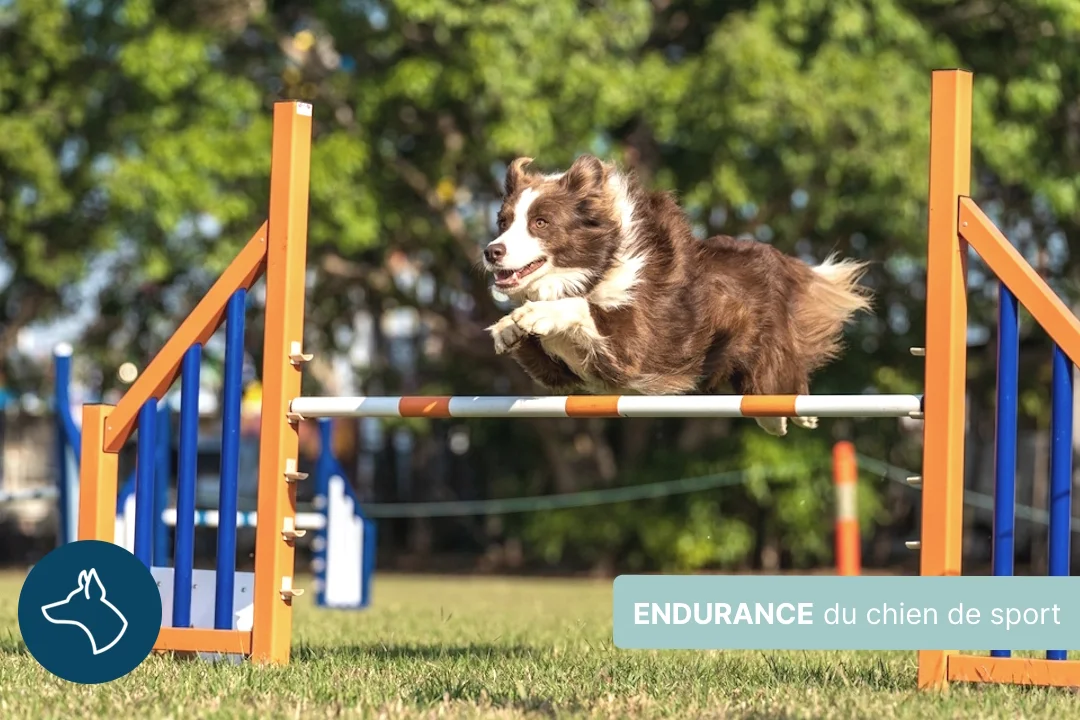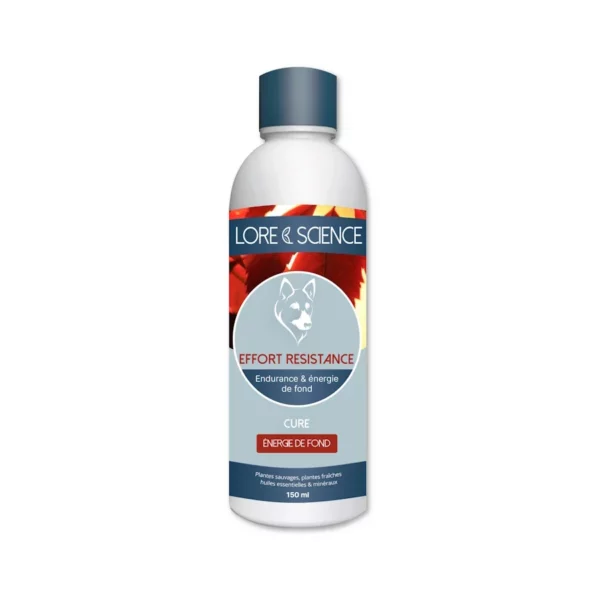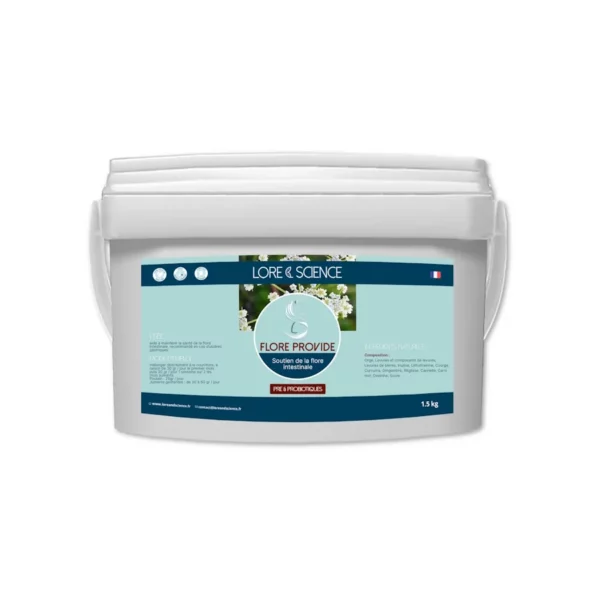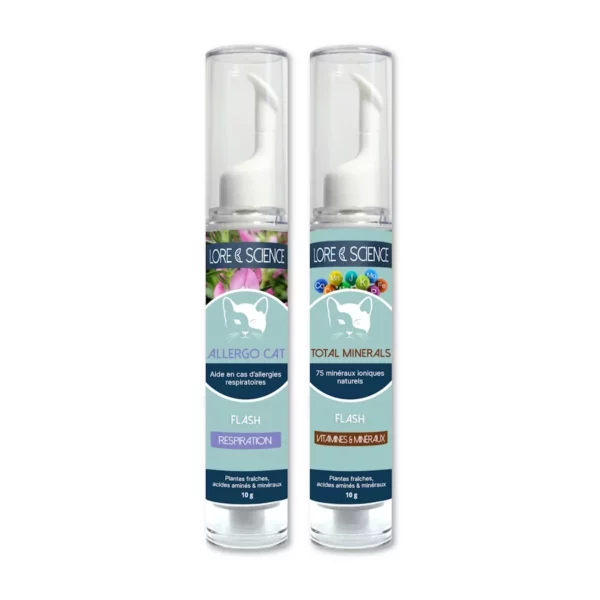Sporting dogs, whether in IPO competitions,agility, canicross, flyball or other physical activities, need extra stamina to perform at their best. That's why Lore & Science specialists explain how to improve your sporting dog's stamina. From nutrition to training and recovery, discover strategies and tips to help your dog excel on the field.
Endurance in sporting dogs: an indispensable asset
Endurance, in the context of dog sports, is of paramount importance. It is defined as a dog's intrinsic ability to sustain an intense level of physical activity over a prolonged period. This ability is the cornerstone of your four-legged friend's performance. Indeed, during competitions or demanding sporting activities, the ability to maintain a sustained effort is synonymous with success. This enables your dog to compete to its full potential, minimize the risk of fatigue-related injury and enjoy the sporting experience to the full. In short, stamina is the key to your sporting dog's performance and well-being.
The right diet to optimize endurance in sporting dogs
Quality nutrition is the foundation of your dog's athletic performance. The nutritional needs of sporting dogs are different from those of sedentary dogs. To optimize your pet's performance, it's vital to understand how to balance the key macronutrients: proteins, carbohydrates and fats.
Let's start with proteins. Protein is essential for building muscle strength. Opt for a diet rich in high-quality protein, as it provides the essential amino acids needed for muscle growth and tissue repair. Well-developed muscles are less likely to tire quickly, which is a key factor in keeping your dog's stamina at optimum levels.
Carbohydrates are the main source of energy for active dogs. Complex carbohydrates, such as those found in whole grains, are a wise choice. They release energy on a regular, sustained basis, which is particularly important for prolonged sporting activities.
Healthy fats are also often underestimated in the diet of sporting dogs. Yet they act as a long-term source of energy, ideal for supporting endurance. Healthy fats, such as those found in fish oils and coconut oil, deserve a special place in your dog's diet. Not only do they provide a performance boost, they also have anti-inflammatory properties and contribute to your pet's overall health.
Finally, healthy food supplements based on fresh plants, essential and vegetable oils will support your sporting dog's metabolism. Effort Resistance Dog has been designed with this in mind. This supplement provides support for metabolic functions, the pancreas and the heart, designed to develop theendurance of working, sporting and utility dogs.
Progressive training: the key to developing canine endurance
Together with proper nutrition and hydration, training is of course the key to optimal endurance for your sporting dog. We recommend a progressive and adapted training program to improve your dog's sporting performance, while respecting his health. This allows muscles, joints and the cardiovascular system to adapt gradually to the effort involved, while preventing boredom.
Running, swimming, jumping and other exercises can be incorporated to bring versatility to your sporting dog's training. This diversification of activities strengthens his overall physical condition, as each exercise solicits and develops specific muscular skills.
Another key element in endurance training is the use of interval training. This method consists of alternating between periods of intense effort and periods of recovery. For example, have your dog run at full speed for 30 seconds, followed by 30 seconds of slower walking or trotting. Repeat this cycle several times during a training session. Interval exercise is known to significantly improve endurance by pushing your dog's body to work harder, while allowing for recovery periods to avoid muscle overload.
Finally,mental training is an often overlooked but crucial facet of endurance improvement. Thinking and obedience exercises strengthen your dog's concentration and mental stamina. These activities stimulate his intellect, which is essential for maintaining sustained performance over long periods. What's more, a mentally stimulated dog is better able to stay engaged and focused during training sessions, which is particularly important for demanding sporting activities.
Better recovery for better endurance in sporting dogs
Active recovery plays a vital role in preventing excessive fatigue and injury. After an intensive training session, it's imperative to plan a period of active recovery. This allows your dog to gradually return to a resting state, while helping to reduce the build-up of lactic acid and other metabolic waste products in the muscles, thus helping to prevent muscle fatigue and maintain high-level performance over the long term.
There are three main factors to take into account to promote a good recovery process: stretching, massage and sleep.
The importance of stretching lies in its ability to prevent muscle stiffness by improving the flexibility of the muscles that have been used during exercise. This increased flexibility promotes your dog's agility and mobility, keeping him supple and ready for new sporting adventures. Targeted massages can relax tense muscles, reduce muscle knots andimprove blood circulation. The quality of your dog's sleep is essential to his health and performance. A restful night's sleep is essential after intense exertion, as it is during sleep that the body carries outtissue repairs, replenishes energy reserves and consolidates mental learning. So it's imperative to create a calm, comfortable environment for your canine companion, enabling him to benefit from quality rest.
As you can see, endurance and its improvement are essential elements in your dog athlete's performance. You can help improve your canine companion's sporting performance by providing him with an appropriate diet, setting up a progressive training program and paying particular attention to his recovery and care. This will enable your canine companion to achieve excellence in his sporting activities.
Share your experience with us in the comments ↓


















One Response to "Improving your sporting dog's stamina: tips and strategies"
Great article, in fact this program is very similar to what is practiced for a human, and the dog naturally has a competitive spirit.